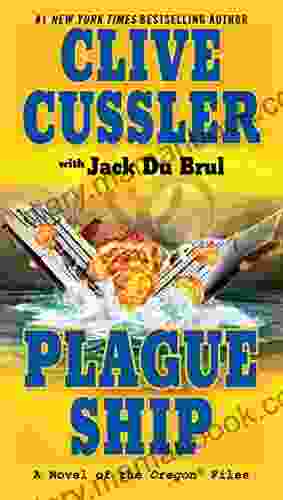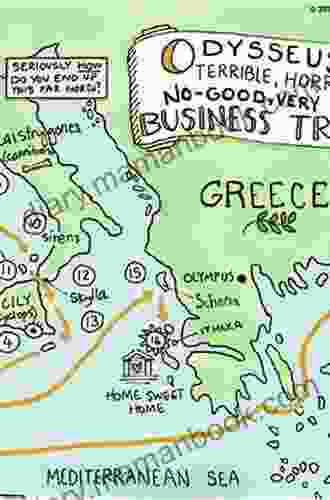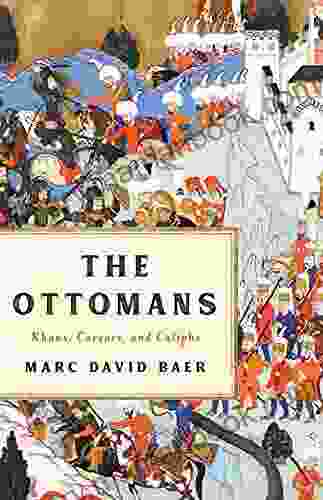Commentary On The English Translation Of Robert Fitzgerald

Robert Fitzgerald's English translation of the Iliad, first published in 1974, has been widely praised for its readability, accuracy, and faithfulness to the original Greek text. However, some critics have argued that Fitzgerald's translation is too literal and misses the beauty and grandeur of Homer's poetry.
In this article, we will take a closer look at Fitzgerald's translation of the Iliad, exploring the strengths and weaknesses of his approach through a critical analysis of key passages. We will also compare Fitzgerald's translation to other notable English translations of the Iliad, such as those by Richmond Lattimore and Alexander Pope.
4.3 out of 5
| Language | : | English |
| File size | : | 1745 KB |
| Text-to-Speech | : | Enabled |
| Screen Reader | : | Supported |
| Enhanced typesetting | : | Enabled |
| Word Wise | : | Enabled |
| Print length | : | 464 pages |
Accuracy and Faithfulness
One of the most important criteria for evaluating a translation is its accuracy and faithfulness to the original text. Fitzgerald's translation of the Iliad is generally considered to be one of the most accurate and faithful English translations available. He takes great care to render the original Greek text as literally as possible, while still maintaining the readability and flow of the English language.
For example, in the opening lines of the Iliad, Homer describes the wrath of Achilles as "a grievous plague" that brought countless sorrows upon the Greeks. Fitzgerald translates this passage as follows:
Sing, goddess, the anger of Peleus' son Achilleus;
His baneful wrath that brought ten thousand woes
Upon the Greeks, and sent untimely down
To Hades many valiant souls, and gave
Their flesh to dogs and birds to be devoured.
As you can see, Fitzgerald's translation is very literal, following the original Greek text closely. He uses words like "baneful" and "untimely" that are not commonly used in modern English, but which are faithful to the original Greek. He also avoids using poetic devices like alliteration or assonance, which would have made the translation less faithful to the original.
However, some critics have argued that Fitzgerald's literal approach results in a translation that is too dry and academic. They argue that Fitzgerald sacrifices the beauty and grandeur of Homer's poetry in order to achieve accuracy. For example, in the following passage, Homer describes the Greek warriors marching into battle:
And as when a fire falls upon a great forest on the hills,
And the wind seizes on it and drives it along,
And the trees fall crashing before the fierce blast,
So beneath the tread of the warriors the earth groaned.
Fitzgerald translates this passage as follows:
As when a forest fire devours a mountain range,
And in the wind's grip races on and on,
And tree by tree crashes as roars the blast,
So under the men's tread the earth groaned out.
As you can see, Fitzgerald's translation is very literal, but it lacks the vivid imagery and energy of Homer's original. He uses words like "devours" and "races" that are not as evocative as Homer's words, and he breaks up the long, flowing lines of the original into shorter, more choppy lines.
Readability and Flow
In addition to accuracy and faithfulness, another important criterion for evaluating a translation is its readability and flow. Fitzgerald's translation of the Iliad is generally considered to be one of the most readable and fluent English translations available. He uses clear, concise language and avoids archaic or obscure words. He also takes care to create a smooth, flowing rhythm that makes the translation easy to read aloud.
For example, in the following passage, Homer describes the Greek warriors preparing for battle:
And now from their ships and from their tents they poured,
Like bees that stream forever from a hollow rock,
Cluster on cluster issuing, and the meadow flowers
Are loud with humming.
Fitzgerald translates this passage as follows:
And now they swarmed forth from their ships and shelters,
As when bees stream out in steady clouds
From some hollow rock, and hang in clusters there,
And loud the meadows hum with their pouring.
As you can see, Fitzgerald's translation is very readable and fluent. He uses clear, concise language and avoids archaic or obscure words. He also creates a smooth, flowing rhythm that makes the translation easy to read aloud.
However, some critics have argued that Fitzgerald's focus on readability and flow sometimes leads him to sacrifice accuracy and faithfulness. For example, in the following passage, Homer describes the Greek warriors fighting in close combat:
And they hacked each other with their keen swords,
And the air was thick with the smell of blood.
Fitzgerald translates this passage as follows:
Their hacked swords made a godawful mess,
And the air stunk with gore.
As you can see, Fitzgerald's translation is more readable and fluent than Homer's original. However, he also sacrifices some of the accuracy and faithfulness of the original text. For example, he replaces the more neutral word "hacked" with the more graphic word "hacked," and he adds the slang term "godawful" to make the passage more colloquial.
Comparison to Other Translations
In addition to Fitzgerald's translation, there are many other notable English translations of the Iliad. Two of the most popular are the translations by Richmond Lattimore and Alexander Pope.
Lattimore's translation is known for its accuracy and faithfulness to the original Greek text. He takes great care to render the original Greek text as literally as possible, while still maintaining the readability and flow of the English language. His translation is often used by scholars and students who want to get as close as possible to the original Greek text.
Pope's translation is known for its beauty and grandeur. He does not take as literal an approach as Fitzgerald or Lattimore, but he instead focuses on creating a translation that is both accurate and poetic. His translation is often used by readers who want to enjoy the Iliad as a work of literature.
Here is a comparison of the three translations of the opening lines of the Iliad:
| Translation | Lines |
|---|---|
| Fitzgerald | Sing, goddess, the anger of Peleus' son Achilleus; His baneful wrath that brought ten thousand woes Upon the Greeks, and sent untimely down To Hades many valiant souls, and gave Their flesh to dogs and birds to be devoured. |
| Lattimore | Sing, goddess, the ruinous wrath of Achilles, Peleus' son, that brought on countless ills to the Achaeans, hurled down to Hades untimely many valiant souls, and made their bodies spoil for dogs and birds of every kind. |
| Pope | Achilles' wrath, to Greece the direful spring Of woes unnumber'd, heavenly goddess, sing! That wrath which hurl'd to Pluto's gloomy reign The souls of mighty chiefs untimely slain; Whose bones, unburied on the desert shore, Devouring dogs and hungry vultures tore. |
As you can see, Fitzgerald's translation is the most literal of the three, while Pope's translation is the most poetic. Lattimore's translation falls somewhere in between, offering a balance of accuracy and readability.
Robert Fitzgerald's English translation of the Iliad is a major achievement in the field of classical scholarship. It is a highly accurate and faithful translation that is also readable and fluent. However, some critics have argued that Fitzgerald's focus on readability and flow sometimes leads him to sacrifice accuracy and faithfulness. Ultimately, the best translation of the Iliad for you will depend on your individual preferences.
4.3 out of 5
| Language | : | English |
| File size | : | 1745 KB |
| Text-to-Speech | : | Enabled |
| Screen Reader | : | Supported |
| Enhanced typesetting | : | Enabled |
| Word Wise | : | Enabled |
| Print length | : | 464 pages |
Do you want to contribute by writing guest posts on this blog?
Please contact us and send us a resume of previous articles that you have written.
 Top Book
Top Book Novel
Novel Fiction
Fiction Nonfiction
Nonfiction Literature
Literature Paperback
Paperback Hardcover
Hardcover E-book
E-book Audiobook
Audiobook Bestseller
Bestseller Classic
Classic Mystery
Mystery Thriller
Thriller Romance
Romance Fantasy
Fantasy Science Fiction
Science Fiction Biography
Biography Memoir
Memoir Autobiography
Autobiography Poetry
Poetry Drama
Drama Historical Fiction
Historical Fiction Self-help
Self-help Young Adult
Young Adult Childrens Books
Childrens Books Graphic Novel
Graphic Novel Anthology
Anthology Series
Series Encyclopedia
Encyclopedia Reference
Reference Guidebook
Guidebook Textbook
Textbook Workbook
Workbook Journal
Journal Diary
Diary Manuscript
Manuscript Folio
Folio Pulp Fiction
Pulp Fiction Short Stories
Short Stories Fairy Tales
Fairy Tales Fables
Fables Mythology
Mythology Philosophy
Philosophy Religion
Religion Spirituality
Spirituality Essays
Essays Critique
Critique Commentary
Commentary Glossary
Glossary Bibliography
Bibliography Index
Index Table of Contents
Table of Contents Preface
Preface Introduction
Introduction Foreword
Foreword Afterword
Afterword Appendices
Appendices Annotations
Annotations Footnotes
Footnotes Epilogue
Epilogue Prologue
Prologue Owen Cotton
Owen Cotton Mari Ono
Mari Ono Jan Venolia
Jan Venolia Desiree Hensel
Desiree Hensel K Sharronne
K Sharronne Richard Beard
Richard Beard Theo A Demoya
Theo A Demoya Lama Surya Das
Lama Surya Das Jon Clinch
Jon Clinch Lauren Liess
Lauren Liess Dante Alighieri
Dante Alighieri Karpov Kinrade
Karpov Kinrade Claudia Ulloa Donoso
Claudia Ulloa Donoso Andrew Alexander
Andrew Alexander James Engelhardt
James Engelhardt Janice Benggio
Janice Benggio Jenn Mckinlay
Jenn Mckinlay Sean Julie
Sean Julie John Guttag
John Guttag L Renee Whaley
L Renee Whaley
Light bulbAdvertise smarter! Our strategic ad space ensures maximum exposure. Reserve your spot today!

 Ryūnosuke AkutagawaDesign Sew Complete Outfits: Mood Boards, Fashion Sketching, Choosing Fabric,...
Ryūnosuke AkutagawaDesign Sew Complete Outfits: Mood Boards, Fashion Sketching, Choosing Fabric,...
 Adrien BlairWhat Should You Write in a Sympathy Greeting Card? 101 Sentiments to Express...
Adrien BlairWhat Should You Write in a Sympathy Greeting Card? 101 Sentiments to Express... Cole PowellFollow ·18.8k
Cole PowellFollow ·18.8k Sean TurnerFollow ·14.6k
Sean TurnerFollow ·14.6k Nathaniel HawthorneFollow ·15.4k
Nathaniel HawthorneFollow ·15.4k Finn CoxFollow ·7.5k
Finn CoxFollow ·7.5k Jake PowellFollow ·5.9k
Jake PowellFollow ·5.9k Brett SimmonsFollow ·9.8k
Brett SimmonsFollow ·9.8k Alfred RossFollow ·14.7k
Alfred RossFollow ·14.7k James JoyceFollow ·11.7k
James JoyceFollow ·11.7k

 Jorge Luis Borges
Jorge Luis BorgesThe Truth About the 15 Qualities That Men Secretly Admire...
Every woman wants to be loved and...

 Francisco Cox
Francisco CoxPlague Ship: Unraveling the Mystery of the Oregon Files
The Oregon Files, a collection of classified...

 Rudyard Kipling
Rudyard Kipling101 Strategies to Make Academic Vocabulary Stick: A...
Academic vocabulary is an...

 Fletcher Mitchell
Fletcher MitchellPractitioner Guide for Cities, Regions, and Countries:...
The world is...

 Emilio Cox
Emilio CoxOptimization and Security Challenges in Smart Power Grids
Smart power grids (SPGs) are emerging as a...

 Chandler Ward
Chandler WardMiles Davis and the Civil Rights Movement in America: A...
Miles Davis, the iconic jazz...
4.3 out of 5
| Language | : | English |
| File size | : | 1745 KB |
| Text-to-Speech | : | Enabled |
| Screen Reader | : | Supported |
| Enhanced typesetting | : | Enabled |
| Word Wise | : | Enabled |
| Print length | : | 464 pages |








